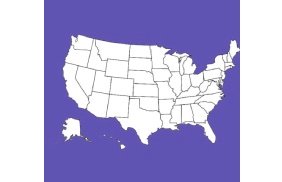In our previous post, we discussed how a cannabis business can take steps to avoid potential trademark infringement claims. In this release, we will discuss how a cannabis business can use trademarks for brand protection – despite the fact that federal law prohibits filing a cannabis-related trademark.
Acquiring State Trademarks
The most obvious (and widespread) option to protect a cannabis trademark is to obtain trademark registrations in all states where the mark is being used. In trademark law, the first use of a mark within a territory typically establishes trademark ownership in that territory.
Registering and policing a state trademark is relatively straightforward. In Michigan, for instance, a certificate of registration is admissible as evidence of an applicant’s right to use the mark throughout Michigan (MCL 429.34(3)). Suppose a trademark is registered with the state. In that case, the registration is prima facie evidence that the mark is valid, and the burden of production shifts to a defendant to demonstrate that the mark is not valid.
Although state registration can provide trademark protection, such protection is limited geographically. Thus, cannabis companies are incentivized to register in other neighboring states – as another company’s mark in a different state may be substantially similar or identical, thus precluding later competition and/or expansion into the different state. However, to get protection in differing states, actual use of the mark in that state is required. Given the federal implications of cannabis use, this can create hurdles for protection in the neighboring states. But the upside is significant as precluding a copycat business from getting started in another state mitigates the risk of a race for federal registration once Congress legalizes recreational cannabis at the federal level. Indeed, expansion plans may be limited or thwarted by a competing claim for trademark ownership in a different territory, so growing cannabis companies should seek to address these trademark issues sooner rather than later.
Trademarking Other Goods or Services
Although federal trademark protections remain unavailable for cannabis companies, ancillary goods and services that do not contain a federally unlawful substance could be eligible for federal trademark registration. Navigating such registration is tricky, though, as the USPTO often requires companies to declare that ancillary products will not be used to market marijuana.
If a cannabis business’ trademark is already inextricably intermingled with products that contain cannabis, a related strategy is registering cannabis-related goods in states where recreational cannabis is still illegal – then later extending the trademark to goods that contain cannabis once it is inevitably legalized in that state. This strategy draws on trademark law’s “zone of expansion” doctrine.
The “zone of expansion” doctrine allows the first applicant to file and receive trademark protection in any product line to have priority over an intervening user in a new product line – so long as expansion between the two product lines is considered “natural.” This is because trademark protection extends to products that customers reasonably expect the trademark owner to later sell and expand into (i.e., the “natural zone of expansion”). Thus, some cannabis companies sell CBD products, cannabis-related apparel (i.e., made from hemp and/or displaying cannabis-related graphics), and smoking accessories—and use these marks at trade shows and business conferences to build a foundation for their trademark, which will later encompass their cannabis products once legalized.
Using USPTO Filing Procedures and Loopholes to Gain Priority for Federal Trademark Registration
There are other strategies that cannabis companies can take advantage of, at the federal level, that are higher-risk and more aggressive—but the risk may be rewarded. For instance, cannabis companies can file an intent to use (ITU) application, which allows an applicant to secure its place in line without having to actually use the mark in commerce. After an ITU application has been granted allowance, the applicant has six months to file a statement of use, transforming the ITU allowance into a federal trademark. Significantly, ITU application can be extended for three years. So, a cannabis company can file an ITU application now, declaring that cannabis-related goods and services will be lawful, and then hope that the statement becomes true before the three-year window lapses. Notably, certain federal lawmakers have continued to signal that legalization is on the horizon, so a cannabis company would have an incentive to file such an application soon – given the lengthy timeline of examination/extension. If timed successfully, this tactic would confer a considerable head start to cannabis companies seeking nationwide, federal priority for their cannabis trademarks.
Alternatively, yet similarly, cannabis companies can apply for federal trademark registration, wait for an “Office Action,” respond, wait for a “Final Office Action,” and then, before the final response is due, refile the application to keep the application going (indefinitely). This would also confer priority over competing marks.
These tactics (and others like them) are just a few ways to ascertain widespread trademark protections, even though cannabis trademarks receive varying treatment throughout US jurisdictions. Competent trademark counsel can make all the difference when navigating through these murky areas of the law.
The trademark landscape in the context of recreational cannabis remains murky and riddled with pitfalls for unassuming business owners. That is why it is important to hire attorneys with trademark experience who know the cannabis industry and how to navigate its thorny trademark issues.
[View source.]
https://www.jdsupra.com/legalnews/how-to-protect-your-cannabis-trademarks-6659057/





